KELOMPOK KEPENTINGAN DAN RELASI KUASA DALAM PENGELOLAAN SUMBER DAYA LAUT PALABUHANRATU
Abstract
Tujuan penelitian ini adalah menganalisis aktor dan relasi kekuasaan yang terjadi dalam pengelolaan sumber daya laut Palabuhanratu. Lokasi penelitian di Perairan Laut Palabuhanratu, Sukabumi, Jawa Barat. Penelitian menggunakan metode kualitatif. Hasil penelitian menunjukkan bahwa semua aktor membangun kekuasaan melalui mekanisme akses berbasis hak dan mekanismes akses berbasis struktur dan relasi sosial dengan basis kekuasaan modal, pasar, teknologi, pengetahuan, identitas sosial, otoritas, dan patron klien. Kelompok nelayan lokal, nelayan dari luar (nelayan Banten) dan nelayan pendatang etnis Jawa berupaya mempertahankan akses, sementara kelompok nelayan etnis Bugis berupaya mengontrol akses terhadap sumber daya laut. Perbedaan posisi antar kelompok nelayan menyebabkan terjadinya relasi kekuasaan antar kelompok nelayan dalam memperoleh sumber daya laut Palabuhanratu. Sementara aktivitas pihak pengelola PLTU dianggap membatasi kekuasaan kelompok nelayan melalui penggunaan wilayah pesisir dan penggunaan jalur transportasi laut. Keterbatasan akses kelompok nelayan menyebabkan terjadinya relasi kuasa antara nelayan dengan pengelola PLTU.
Title: Group of Interest and Relation Power in The Utilization of Marine Resources Palabuhanratu
The purpose of this study is to analyze the actors and power relations occured in the management of Palabuhanratu marine resources. Research was located in Palabuhanratu Sea Waters, Sukabumi, West Java. Research used qualitative methods. Results of the study showed that all actors built power through right-based access mechanisms and mechanisms based on structure and social relations with a basis of power of capital, markets, technology, knowledge, social identity, authority, and patron clients. Local fishing groups, outside fishers (Banten fishers) and Javanese ethnic fishers tried to maintain access, while Bugis ethnic fishers groups tried to control access to marine resources. Differences in position between fishers groups led to power relations among the groups in obtaining Palabuhanratu marine resources. While the activities of the management of the Steam Power Plant (PLTU) were considered to limit the power of fishers groups through the use of coastal areas and sea transportation routes. Limited access of fishers groups led to power relations between fishers and managers of Steam Power Plants (PLTU).
Keywords
Full Text:
PDFReferences
[BPS] Badan Pusat Statistik Indonesia. 2016. Statistik Sumber Daya Laut Dan Pesisir 2016. Jakarta (ID): Badan Pusat Statistik Indonesia.
[DKP] Direktorat Kelautan dan Perikanan. 2014. Kajian Strategi Pengelolaan Perikanan Berkelanjutan. Jakarta (ID): Direktorat Kelautan dan Perikanan.
[FOA] Food and Agriculture Organization. 2000. Conflict and natural Resource Management. Rome (IT): Food and Agriculture Organization.
[PPN] Pelabuhan Perikanan Nusantara Palabuhanratu.2017. Statistik Pelabuhan Perikanan Nusantara Palabuhanratu Tahun 2017. PPN Palabuhanratu.
Bryant, R.L dan S. Bailey. 1997. Third World Political Ecology. Routledge: London and New York.
Bryant, R.L. 1998. Power, Knowledge, and Political Ecology in the third world: a Review. Journal Proggress in Pshysical Geography 22, 1 pp 79-94.
Buckles, D. 1999. Cultivating Peace; Conflict and
Collaboration in Natural Resources Management. International Development Research Center (IDRC) in collaboration with The World Bank Institute. Ottawa. Canada.
Febryano, I.G., D. Suharjito, D. Darusman dan C. Kusmana. 2015. Aktor dan Relasi Kekuasaan Dalam Pengelolaan Mangrove Di Kabupaten Pesawaran. Jurnal Analisis Kebijakan Kehutanan. Vol. 12 No.2.
Herwening, E. 2003. Modernisasi Perikanan Dan Potensi Konflik di Palabuhanratu. Fakultas Ekologi Manusia. Institut Pertanian Bogor.
Program Magister Sosiologi Pedesaan. Bogor.
Kurniawan, D. 2012. Analisis Dampak Pembangunan Pembangkit Listrik 10.000 MW Terhadap Perekonomian Indonesia [Tesis]. Jakarta (ID): Universitas Indonesia.
Miles, M.B., A.M. Huberman dan J. Saldana. 2014. Qualitative Data Analysis: A Methods Sourcebook. United States of America (US): Arrizona State University.
Priyatna F.N., R.A. Kinseng dan A. Satria. 2013. Akses dan strategi aktor-aktor dalam pemanfaatan sumber daya waduk Djuanda. J Sosek KP Vol. 8 (1), pp. 1-9.
Ribot, J.C dan N.L. Peluso. 2003. A theory of access. Rural Sociology, Vol. 68 No 2, pp. 153-181.
Kinseng, A.R. 2007. Konflik-Konflik Sumber daya Alam di Kalangan Nelayan di Indonesia. Sodality. ISSN: 1978-4333, Vol. 01, No. 01.
Satria, A. 2015. Pengantar Sosiologi Masyarakat Pesisir. Jakarta (ID): Yayasan Pustaka Obor Indonesia.
Scott, J.C. 1990. Dominations and The Art of Resistance. Yale Univercity.
Wegenast, T. and Schneider, G. 2016. Ownership matters: Natural resources property rights and social conflict in Sub-Saharan Africa. Political Geography. 61 (2017) 110-122.doi: 10.1016/j. polgeo.2017.07.007.
DOI: http://dx.doi.org/10.15578/jksekp.v8i2.7430
Indexed by:
---------------------------------------------------------------------------------------
Published by
Research Center for Marine and Fisheries Socio-Economic
in collaboration with
Indonesian Marine and Fisheries Socio-Economics Research Network
This work is licensed under a Creative Commons Attribution-NonCommercial-ShareAlike 4.0 International License.

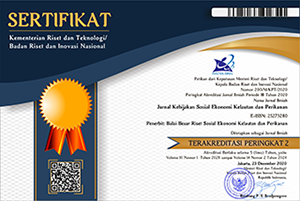
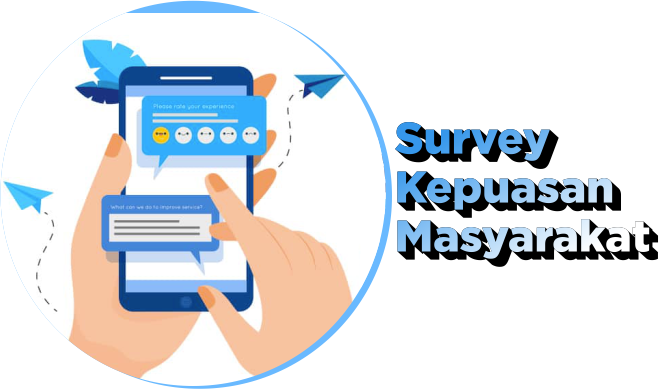
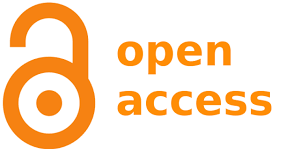






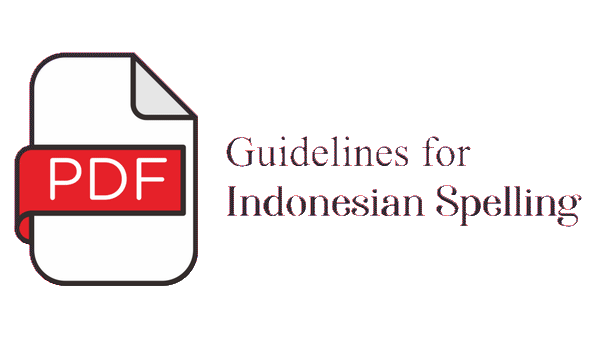
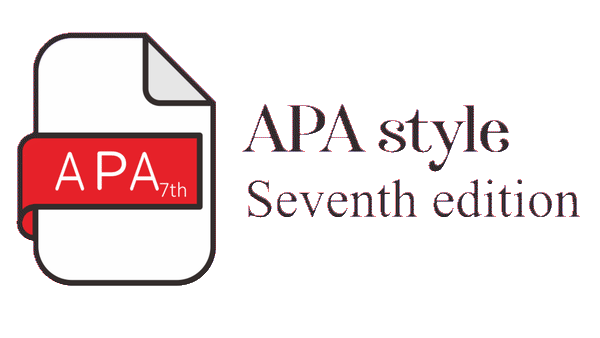


3.png)











